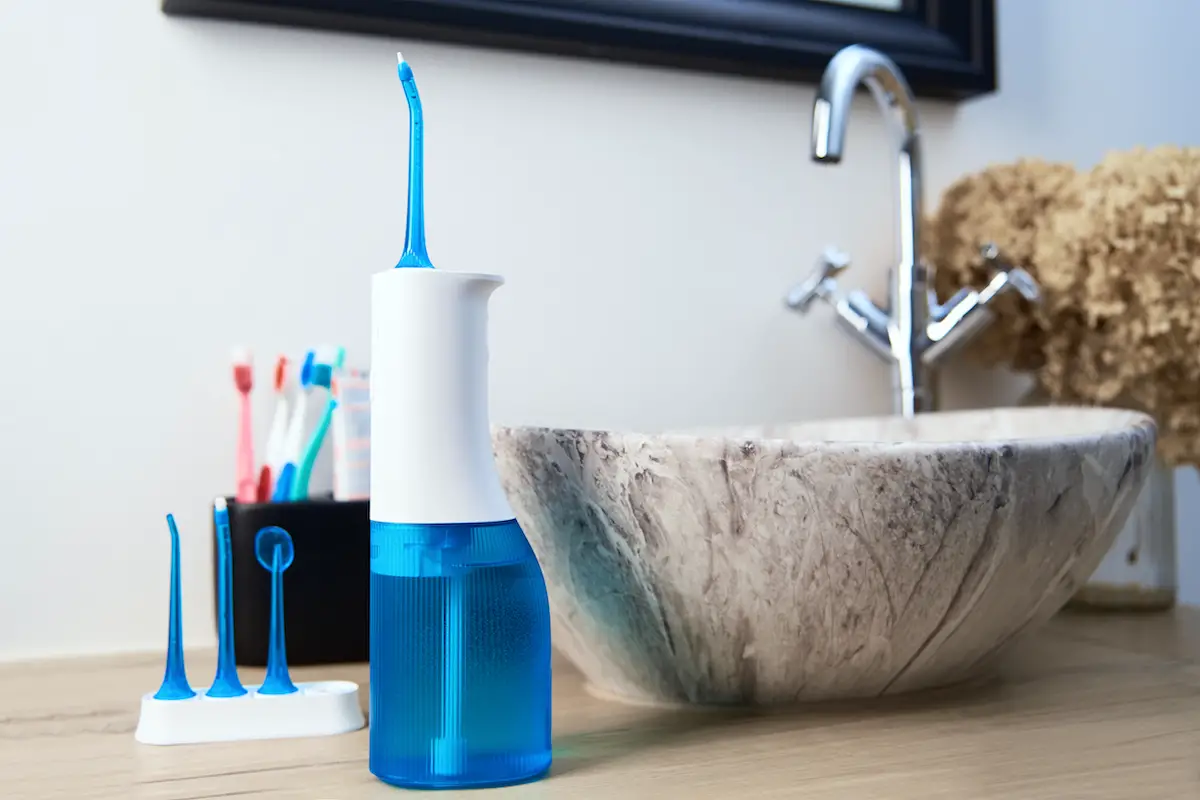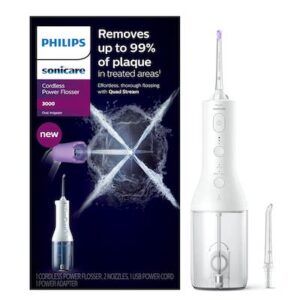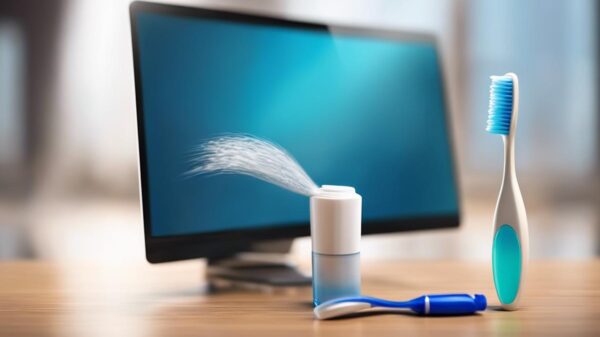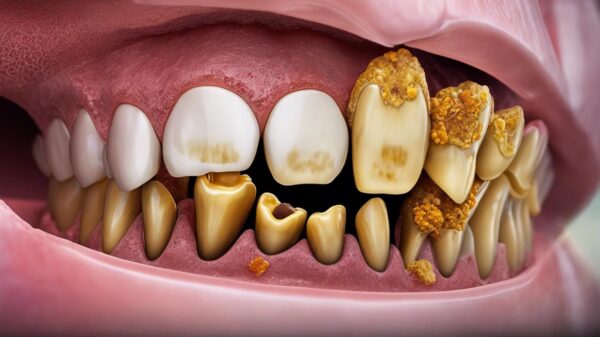What Is The Best Water Flosser For Implants?
When it comes to dental implants, there are a few things you need to take into consideration in order to ensure that they stay healthy and look great. One of the most important things you can do for your implants is to keep them clean, and one of the best ways to do that is by using a water flosser. There are a lot of different water flossers on the market, so it can be tough to know which one is right for you. So what are the best water flossers for dental implants?
The Best Water Flosser for Implants are:
So, now that you have an idea of what the best water flosser for implants is, let’s examine each of them in detail. However, before that, let’s discuss what you should look for in a water flosser, why you should practice oral hygiene, and more!
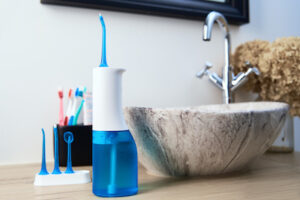
Why You Should Floss
Most people know that they should floss daily, but many still do not make it a priority. There are a few reasons why people may choose to ignore flossing, even though they know it is important for their oral health.
The first reason is that flossing can be time-consuming. It takes a few minutes out of your day to properly floss all of your teeth, and many people feel like they do not have the time for it. When you are busy with work, school, or taking care of your family, it can be easy to let flossing fall by the wayside.
Another reason people may avoid flossing is that it can be uncomfortable. Getting in between your teeth can be a tight squeeze, and some people do not like the sensation of flossing. If your gums are sensitive, flossing can also be painful.
Lastly, some people simply do not see the point of flossing. They may think that brushing alone is enough to keep their teeth clean, or they may not be aware of the benefits of flossing.
While there are a few reasons why people may choose not to floss, it is still important to make it a priority. Flossing helps remove plaque and bacteria from your teeth and gums, which can reduce your risk of developing cavities and gum disease. It is also an important part of maintaining good oral hygiene.
What Are Some Benefits?
1. Flossing can help prevent gum disease by removing plaque from your teeth and gums.
2. Flossing can help prevent tooth decay by removing food and bacteria from your teeth.
3. Flossing can help to keep your teeth and gums healthy by stimulating blood flow to the area.
4. Flossing can help you to avoid bad breath by keeping your mouth clean and free of bacteria.
5. Flossing can help you to save money on dental bills by preventing cavities, tooth decay, and other dental problems.
6. Flossing can help you to keep your smile looking its best by preventing staining and discoloration of your teeth.
7. Flossing is easy to do and only takes a few minutes each day.
You Don’t Have To Use String
There are many different ways to clean your teeth, and flossing with a string is just one option. If you’re looking for alternatives to flossing with a string, there are plenty of options available.
Water Flossers
One popular alternative to flossing with a string is using a water flosser. Water flossers are handheld devices that shoot a stream of water at your teeth. They can be used with or without toothpaste, and they’re effective at removing plaque and bacteria from your teeth and gums. Water flossers are easy to use, and they’re a great option if you have braces or other dental appliances that make traditional flossing difficult.
Dental Picks
Another popular alternative to flossing with a string is with a dental pick. Dental picks are small, hand-held devices that have a thin, pointed end. You can use them to reach between your teeth and remove plaque and bacteria. Dental picks are easy to use, and they’re a great option if you have trouble using traditional floss.
Things to Look for In a Water Flosser
There are a few things you should look for when choosing a water flosser for your dental implants.
First, make sure that the water flosser you choose is specifically designed for use with implants. There are some models that are not meant for use with implants, and using one of those can actually damage your implants.
Second, you’ll want to make sure that the water flosser you choose is gentle enough not to damage your implants. Some water flossers are very powerful and can actually end up causing harm to your implants if they’re not used properly. Be sure to read the instructions carefully before using any water flosser, and always start on the lowest setting until you’re sure it’s safe to use a higher setting.
Finally, you’ll want to make sure that the water flosser you choose is easy to use. If you have difficulty using it or if it’s hard to clean, it’s likely that you won’t use it as often as you should. Choose a water flosser that’s easy to set up and use, so that you’ll be more likely to use it on a regular basis.
The Best Water Flossers
When it comes to choosing a water flosser, there are many different brands on the market. So, how do you know which one is the best? It can be tricky to decide, but we’ve done the research for you and compiled a list of the best water flossers for 2022.
Here are some of our top picks for the best water flossers:
1. Waterpik Aquarius Professional Water Flosser
This is the best water flosser for those with or without implants. As this Waterpik water flosser has 10 pressure settings, 7 different tips, and 90 seconds worth of water for maximum flossing time so that you do not have to refill it, unlike most if not all handheld cordless models.
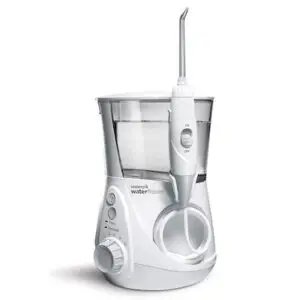
2. Philips Sonicare Power Flosser
This water flosser is designed to remove plaque and bacteria from teeth and gums. It features an easy-to-use design and comes with a variety of tips to accommodate different needs.
3. Waterpik Cordless Plus Water Flosser
This cordless water flosser is ideal for those who travel frequently. It comes with a rechargeable battery and features six different pressure settings.
This water flosser is cordless and features three different cleaning modes. It also comes with a storage case, so it’s easy to take with you on the go.
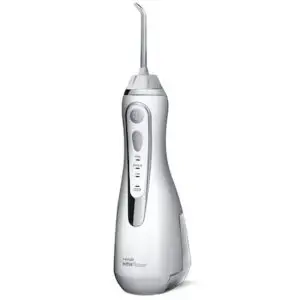
4. H2ofloss Water Dental Flosser
This water flosser is designed to be used in the shower. It’s easy to install and comes with a long hose that allows you to reach all areas of your mouth.
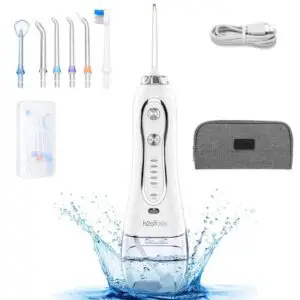
5. Waterpik ION Professional Cordless Water Flosser
This ION model from Waterpik has 10 pressure settings, as well as 90 seconds worth of water for maximum flossing time so that you do not have to refill it, unlike most if not all handheld cordless models.
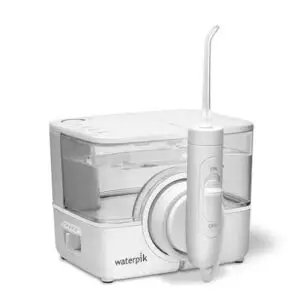
Flossing Technique
There are a few different ways to floss your teeth, and it really depends on what works best for you. When it comes to using a string, some people like to use the traditional method of wrapping the floss around their fingers and then using a back-and-forth motion to clean between their teeth. Others prefer to use an interdental brush, which is a small, toothbrush-like tool that can be used to reach tight spaces between teeth. Whichever method you choose, be sure to floss gently so as not to damage your gums.
Water Flossing Technique
When it comes to using a water flosser, you might find that the technique and tool offer a more refreshing and thorough floss that will help you remove plaque and bacteria from your teeth and gums. Water flossers are easy to use and can be very effective at keeping your smile healthy and sparkling.
To use a water flosser, simply fill the reservoir with water and select the desired setting. Aim the tip of the flosser at your teeth and gums, and then turn it on. The water will flow through the tip and help to remove any plaque or food particles that are stuck in between your teeth. Be sure to move the tip around so that all of your teeth are getting clean.
When you are finished flossing, simply turn off the water flosser and empty the reservoir. Rinse your mouth out with water or mouthwash to remove any remaining debris.
Dental Implants
If you’ve just had dental implants placed, congratulations! You’ve taken an important step towards improving your oral health. However, it’s important to remember that dental implants require special care in order to stay healthy and function properly. Here are five after-care tips to keep in mind:
1. Floss daily.
Just like natural teeth, dental implants need to be flossed daily to remove plaque and bacteria. Be sure to use a gentle flossing motion so as not to damage the implant site.
2. Use a water flosser.
A water flosser is a great way to gently clean dental implants. Be sure to use a setting that is gentle enough not to damage the implant site.
3. Brush twice a day.
Just like natural teeth, dental implants need to be brushed twice a day with a soft-bristled toothbrush. Be sure to use circular motions and avoid scrubbing too harshly.
4. Avoid hard foods.
Hard foods can damage dental implants, so it’s important to avoid them. Stick to soft foods for the first few weeks after your implant surgery.
5. See your dentist regularly.
It’s important to see your dentist regularly for checkups and cleanings, even if you’re taking good care of your implants at home. This will help ensure that your implants stay healthy for years to come.
Overall Flossing Care For Your Implants
It’s no secret that flossing is important for maintaining good oral hygiene. But did you know that flossing is also essential for keeping your dental implants healthy? Dental implants are a popular tooth replacement option because they are strong and durable. However, they are also susceptible to the same problems as natural teeth, including gum disease and tooth decay. That’s why it’s so important to floss regularly if you have dental implants. Flossing removes plaque and bacteria from around the implant, which helps to prevent infection and inflammation. Flossing is an important part of oral care, and water flossing is an effective way to floss dental implants. Water flossers are available at most drugstores and supermarkets. Be sure to floss your implants regularly to keep them clean, healthy, and long-lasting.



